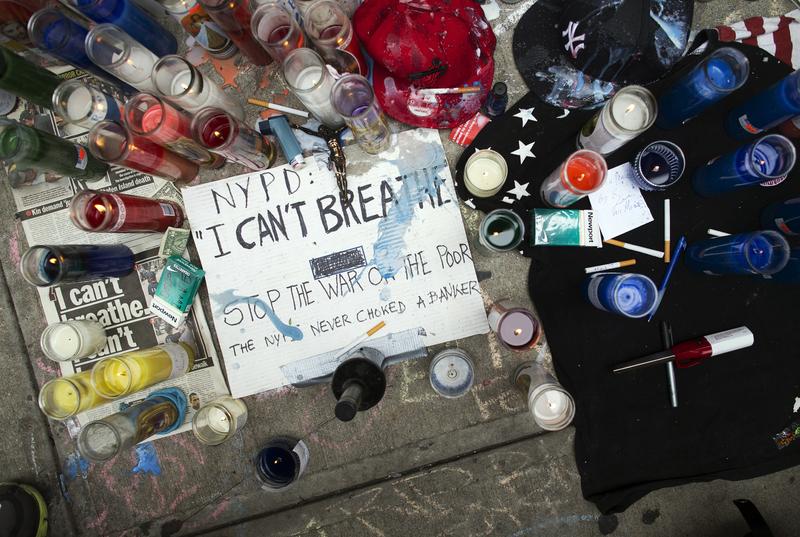
This week marks the five-year anniversary of the death of Eric Garner. One of the officers who forced Garner to the ground—Daniel Pantaleo—is accused of using a banned chokehold on Garner before he died, and the judge in his NYPD administrative trial could issue a ruling soon.
Ever since, the case has sparked conversations about the nature of policing communities of color, and the persistent use of the chokehold. The maneuver's legality and utility has been debated over and over during the last five years. But constitutional scholar Paul Butler sees the chokehold as something else: a metaphor for how the U.S. criminal justice system treats African-Americans.
"A lot of people have anxiety and fear about black men. And the law responds to that anxiety by giving police the power to control and regulate us as they wish," Butler told WNYC's Jami Floyd.
Before becoming an advocate for criminal justice reform and an author, Butler served as a federal prosecutor, and a prosecutor in Washington, D.C. But as he details in his book, Chokehold: Policing Black Men, Butler had a shock to his system when he was arrested and charged for a crime he didn't commit. That experience changed how he saw the system that he was a part of and spurred his shift into activism.
"It's easy to think that the problem is bad-apple cops," Butler said. "I don't think that's it. I think the system is actually working the way it's supposed to."
For the full conversation, click "Listen."
The Docket is our series in which WNYC’s All Things Considered host Jami Floyd takes a deep dive into the American legal system.
